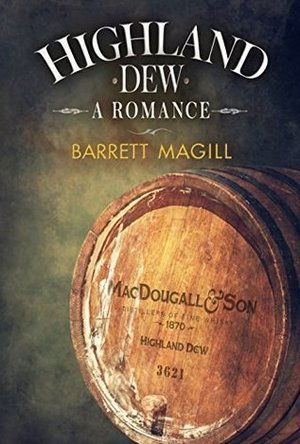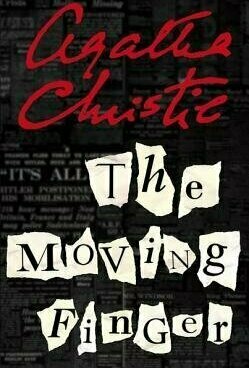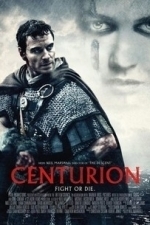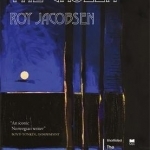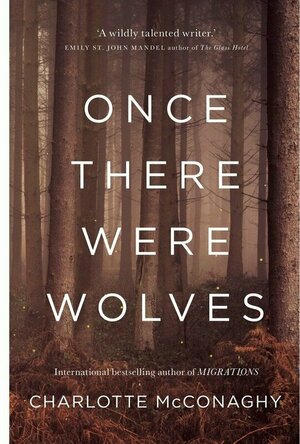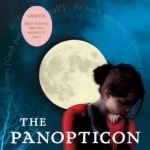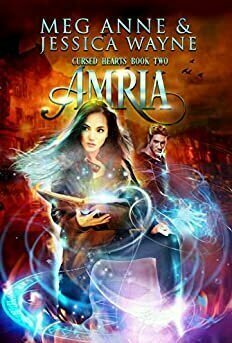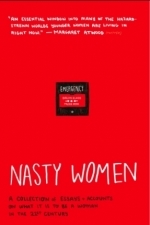Search
Search results
Chris Hooker (419 KP) rated Highland Dew in Books
May 13, 2018
The setting of this book being in Scotland drew me in right away. Not only did Magill do a fabulous job with the scenery but she seemed to capture the soul of the Scottish people. The relationship between the characters of Bryce and Reggie is something of an enigma that will keep you guessing until the end. The relationship that develops between Bryce and Fiona ages just like a fine scotch. This book was truely a pleasure to read.
Meghan Udell recommended The Moving Finger in Books (curated)
David McK (3188 KP) rated Centurion (2010) in Movies
Oct 23, 2020
2010 historical action/adventure, headlined by Michael Fassbender, that purports to tell what really happened to the Roman IX Legion: a Legion that, supposedly, marched into Scotland and was never seen from or heard of again.
This is basically a 'behind enemy lines' tales, with the survivors of an ambush of the Legion picked off one by one (amongst gallons of fake blood) by the Picts, until an ending that you could see coming a mile off!
This is basically a 'behind enemy lines' tales, with the survivors of an ambush of the Legion picked off one by one (amongst gallons of fake blood) by the Picts, until an ending that you could see coming a mile off!
Book Divas (227 KP) rated Sands of Time (Fate of the True Vampires, #1) in Books
Dec 12, 2017
What an extraordinary and well written novella. It was as if Kesi herself was right next to me relating her story. I was quickly pulled in and hung on to every word and I traveled from ancient Egypt to Rome and Scotland and so many other destinations. This is truly not a typical vampiric read and I wish I could give it more than five stars. I can't wait for the release of the second book and I applaud this author's ingenuity.
#savethevampires
#savethevampires
Suswatibasu (1701 KP) rated The Unseen in Books
Jul 24, 2017
Stark look at Norwegian rural life
A wonderful and bleak look into Norwegian farm life and the difficulties faced daily trying to adhere to modern life. There are plenty of tragedies in the Barroy family, but they seem to deal with the toil to the best of their abilities.
The translation may have obscured some of the dialogue, which seemed like it was set in Scotland rather than Scandinavia but the writing is sharp and descriptive without over cluttering the main plot.
The translation may have obscured some of the dialogue, which seemed like it was set in Scotland rather than Scandinavia but the writing is sharp and descriptive without over cluttering the main plot.
ClareR (5566 KP) rated Once There Were Wolves in Books
Oct 24, 2023
Animal protection, Climate Change and a mystery - perfect Clare reading fodder! The relationship between the two sisters, Inti and Aggie, was touching, and the relationship between the main character (Inti) and the townsfolk was tense, to say the least.
The idea of reintroducing wolves to the Highlands of Scotland in order to enrich and preserve the ecosystems there, is fascinating and exciting as a reader - and as someone who doesn’t have to farm under those circumstances. The writing was sensitive to every side of the story, but as Inti was leading the project to reintroduce wild wolves, the novel leant more in her favour - and I enjoyed that.
Aggie, Inti’s twin, has had a very traumatic experience, and she has severe depression along with other mental health problems. Inti hopes that by living in the wilds of Scotland, the isolation and wild country will begin to heal her.
But when one of the townsfolk is hurt, it’s hard to know who is safe - not the wolves, that’s for sure.
There are some really deep, involved themes in this: climate change, ecology, domestic abuse, violence, relationships.
Incidentally, I went on holiday in the Cairngorms this summer. We stayed in a cottage, away from all the other cottages on the estate (we couldn’t even see them), surrounded by fields containing alpacas and deer, with the odd buzzard, peregrine and even an osprey! I half expected to see a wolf-pack!! Sadly, there aren’t any wild wolves in Scotland now, but that estate was a weeks worth of heaven for me and my family - and would have fed a wolf pack for about that long, too!
The idea of reintroducing wolves to the Highlands of Scotland in order to enrich and preserve the ecosystems there, is fascinating and exciting as a reader - and as someone who doesn’t have to farm under those circumstances. The writing was sensitive to every side of the story, but as Inti was leading the project to reintroduce wild wolves, the novel leant more in her favour - and I enjoyed that.
Aggie, Inti’s twin, has had a very traumatic experience, and she has severe depression along with other mental health problems. Inti hopes that by living in the wilds of Scotland, the isolation and wild country will begin to heal her.
But when one of the townsfolk is hurt, it’s hard to know who is safe - not the wolves, that’s for sure.
There are some really deep, involved themes in this: climate change, ecology, domestic abuse, violence, relationships.
Incidentally, I went on holiday in the Cairngorms this summer. We stayed in a cottage, away from all the other cottages on the estate (we couldn’t even see them), surrounded by fields containing alpacas and deer, with the odd buzzard, peregrine and even an osprey! I half expected to see a wolf-pack!! Sadly, there aren’t any wild wolves in Scotland now, but that estate was a weeks worth of heaven for me and my family - and would have fed a wolf pack for about that long, too!
Dork_knight74 (881 KP) rated Malevolent (2018) in Movies
Oct 7, 2018 (Updated Oct 7, 2018)
Better than expected
Found this little gem on Netflix(original). The acting, cinematography and effects are decent. The story played out well. A little bit of a slow starter but kept the interest throughout. No big names that I knew, but the characters were well played. Takes place in the eighties in Scotland and it feels like you're watching a movie made in the eighties. If you're into creepy, supernatural horror flicks this one will please you. Not "The Conjuring" good but still worth a watch.
Eilidh G Clark (177 KP) rated The Panopticon in Books
May 13, 2017
This is my all time favouurite book.
Jenny Fagan stated in an interview in 2013 that prior to writing the novel The Panopticon (2012) she had one question, ‘is it possible to achieve autonomy?’ Fagan explores this question throughout her novel with the character of Anais Hendrix. I would also suggest that the author is metaphorically exploring whether Scotland can achieve autonomy as an independent nation. Autonomy, in relation to the individual, is self-governance- or being able to decide for oneself
At the beginning of the novel, the fifteen-year old Anais is governed by the state. In contemporary British society, a child under the age of sixteen, regardless of her social situation is, by law, governed by an adult/s. Anais has lived her life in the care system with the exception of a short period in which she lived with an adopted mother. It is for this reason that she is able to see society from outside of the family unit. By creating the motherless child, Fagan presents Anais as the ‘other’ from both a societal perspective- ‘communities dinnae like no-ones,’ and from the viewpoint of the protagonist, ‘What they really want is me dead,’ (TP, p.23). Without a family, and through a lack of legitimate information regarding her birth mother, Anais believes that she was created in a lab:
I’M AN experiment. I always have been, It’s a given, a liberty, a fact. They watch me. Not just in school or social-work reviews, courts or police cells – they watch everywhere. […] They’re there when I stare too long or too clearly, without flinching. […] They watch me, I know it, and I can’t find anywhere any more – where they can’t see, (TP, Prologue).
Note that in the above quotation, the protagonist describes her assumed identity as a ‘liberty’. Liberty, in this case, means freedom from the oppressive nature of the family. Although Anais desires the nurturing aspect of the family, ‘I just want my mum,’ (Tp, p.269), her lack of family exposes her to the nature of contemporary society as a constant monitoring of civilians. In the above quotation, the repetition of ‘they’ suggests that she feels outside of the norm. The most important aspect of the above quote however, is that it is told from the protagonist’s thoughts. While Fagan gives Anais a certain amount of autonomy through both the first-person narrator, and the vernacular, the reliability of the narrator is increased by presenting the characters inner thoughts. While this limited autonomy is important, full autonomy is restricted by age. Bever suggests that ‘the capacity for individuals to become autonomous seems radically dependent on the contingent historical circumstances and societies into which they are born. Anais’ awareness of herself as the ‘other’ allows her an insight into the oppressive role of society, which is normally hindered in childhood due to the role of the family and it’s teaching of norms and values.
The sense of otherness can also be looked at in regard to Scotland and its role within the UK. The UK is a family of four countries under one state. Regardless of Scotland’s devolution, it has still to comply with a large amount of UK policies. Scotland has different values and goals to that of the UK making it ‘other’. With a different cultural identity to its neighbours, many Scottish citizens are seeking independence to protect its dwindling identity, whilst for others, independence is political.
Anais’ awareness of social control causes her a feeling of shrinking. This, according to her social workers is an identity problem:
Fifty odd moves, three different names, born in a nuthouse to a nobody that was never seen again. Identity problem? I dinnae have an identity problem – I dinnae have an identity, (TP, p.99).
Anais’ reaction in the above statement describes her lack of knowledge of her ancestry. I would argue that her identity is forced upon her from the fifty-one times that she has moved home, the care system, the solitary time in which she was adopted, the relationships she has had - both female and male, her friends but more importantly, from the unreliable account of her birth from the monk in the metal institution. The lack of family does not alter the fact that she is alive, and that all the fragments of her past make up an identity. For Anais, ‘Families are overrated […] ‘I umnay fooled. Not by families,’(TP, p.63-64). Like Anais, Scotland’s identity is ambiguous. Independence will allow Scotland political autonomy, however, within a global economy, Scotland still has limited autonomy. As culturally ‘other’ however, Scotland has already achieved autonomy with or without a state through its language, its people and its traditions.
Fagan demonstrates the difficulty of total autonomy though Anais and the birthday game, a game in which she creates her own identity. When she turns sixteen years of age, Anais is free from societal care and flees from her imprisonment, ‘I am Frances Jones from Paris. I am not a face on a missing-person poster, I am not a number or a statistic in a file. I have no-one watching me, […] I−begin today,’ (TP, p.323-324). ‘I’ suggests singularity and is still opposite to ‘them’ or ‘we’. Autonomy is therefore, ambiguous; Anais is still living within the same system under a false identity, she is therefore, segregated from everyone that she knows. Moreover, by changing Anais’ name to a name that ‘means freedom.’ (TP, p.323), Fagan is pointing out the difference between freedom and autonomy. Freedom is an emotive word, and there are two concepts of freedom – freedom from, which in Anais’ situation means freedom from the system of observation. Freedom to, however, is more problematic as Anais can never be free from the neoliberal system of rules and law – as Scotland would see in the case of independence. I would therefore conclude that Anais/Scotland has always has limited autonomy through cultural identity and history. I believe autonomy can only reside within the system through cultural and individual imagination and not out with it.
What does this mean for Scotland? If Scotland is part of the global community, can it become an autonomous nation? Is there a solution or should Anais/Scotland accept that cultural autonomy is imagined or self-contained. Can a collective identity and imagination change the political system? Finally, can culture survive without independence?
Bibliography
Crupp, Tyler, ‘Autonomy and Contemporary Political Theory’, in Encyclopaedia of Political Theory, ed. Mark Bevor (London: Sage Publications, 2010)
Fagan, Jenni, The Panopticon (London: Windmill Books, 2013), p.6.
Windmill Books. (2013). Granta Best Young British Novelist Jenni Fagan, . accessed 22 November 2015. Published on Apr 16, 2013
At the beginning of the novel, the fifteen-year old Anais is governed by the state. In contemporary British society, a child under the age of sixteen, regardless of her social situation is, by law, governed by an adult/s. Anais has lived her life in the care system with the exception of a short period in which she lived with an adopted mother. It is for this reason that she is able to see society from outside of the family unit. By creating the motherless child, Fagan presents Anais as the ‘other’ from both a societal perspective- ‘communities dinnae like no-ones,’ and from the viewpoint of the protagonist, ‘What they really want is me dead,’ (TP, p.23). Without a family, and through a lack of legitimate information regarding her birth mother, Anais believes that she was created in a lab:
I’M AN experiment. I always have been, It’s a given, a liberty, a fact. They watch me. Not just in school or social-work reviews, courts or police cells – they watch everywhere. […] They’re there when I stare too long or too clearly, without flinching. […] They watch me, I know it, and I can’t find anywhere any more – where they can’t see, (TP, Prologue).
Note that in the above quotation, the protagonist describes her assumed identity as a ‘liberty’. Liberty, in this case, means freedom from the oppressive nature of the family. Although Anais desires the nurturing aspect of the family, ‘I just want my mum,’ (Tp, p.269), her lack of family exposes her to the nature of contemporary society as a constant monitoring of civilians. In the above quotation, the repetition of ‘they’ suggests that she feels outside of the norm. The most important aspect of the above quote however, is that it is told from the protagonist’s thoughts. While Fagan gives Anais a certain amount of autonomy through both the first-person narrator, and the vernacular, the reliability of the narrator is increased by presenting the characters inner thoughts. While this limited autonomy is important, full autonomy is restricted by age. Bever suggests that ‘the capacity for individuals to become autonomous seems radically dependent on the contingent historical circumstances and societies into which they are born. Anais’ awareness of herself as the ‘other’ allows her an insight into the oppressive role of society, which is normally hindered in childhood due to the role of the family and it’s teaching of norms and values.
The sense of otherness can also be looked at in regard to Scotland and its role within the UK. The UK is a family of four countries under one state. Regardless of Scotland’s devolution, it has still to comply with a large amount of UK policies. Scotland has different values and goals to that of the UK making it ‘other’. With a different cultural identity to its neighbours, many Scottish citizens are seeking independence to protect its dwindling identity, whilst for others, independence is political.
Anais’ awareness of social control causes her a feeling of shrinking. This, according to her social workers is an identity problem:
Fifty odd moves, three different names, born in a nuthouse to a nobody that was never seen again. Identity problem? I dinnae have an identity problem – I dinnae have an identity, (TP, p.99).
Anais’ reaction in the above statement describes her lack of knowledge of her ancestry. I would argue that her identity is forced upon her from the fifty-one times that she has moved home, the care system, the solitary time in which she was adopted, the relationships she has had - both female and male, her friends but more importantly, from the unreliable account of her birth from the monk in the metal institution. The lack of family does not alter the fact that she is alive, and that all the fragments of her past make up an identity. For Anais, ‘Families are overrated […] ‘I umnay fooled. Not by families,’(TP, p.63-64). Like Anais, Scotland’s identity is ambiguous. Independence will allow Scotland political autonomy, however, within a global economy, Scotland still has limited autonomy. As culturally ‘other’ however, Scotland has already achieved autonomy with or without a state through its language, its people and its traditions.
Fagan demonstrates the difficulty of total autonomy though Anais and the birthday game, a game in which she creates her own identity. When she turns sixteen years of age, Anais is free from societal care and flees from her imprisonment, ‘I am Frances Jones from Paris. I am not a face on a missing-person poster, I am not a number or a statistic in a file. I have no-one watching me, […] I−begin today,’ (TP, p.323-324). ‘I’ suggests singularity and is still opposite to ‘them’ or ‘we’. Autonomy is therefore, ambiguous; Anais is still living within the same system under a false identity, she is therefore, segregated from everyone that she knows. Moreover, by changing Anais’ name to a name that ‘means freedom.’ (TP, p.323), Fagan is pointing out the difference between freedom and autonomy. Freedom is an emotive word, and there are two concepts of freedom – freedom from, which in Anais’ situation means freedom from the system of observation. Freedom to, however, is more problematic as Anais can never be free from the neoliberal system of rules and law – as Scotland would see in the case of independence. I would therefore conclude that Anais/Scotland has always has limited autonomy through cultural identity and history. I believe autonomy can only reside within the system through cultural and individual imagination and not out with it.
What does this mean for Scotland? If Scotland is part of the global community, can it become an autonomous nation? Is there a solution or should Anais/Scotland accept that cultural autonomy is imagined or self-contained. Can a collective identity and imagination change the political system? Finally, can culture survive without independence?
Bibliography
Crupp, Tyler, ‘Autonomy and Contemporary Political Theory’, in Encyclopaedia of Political Theory, ed. Mark Bevor (London: Sage Publications, 2010)
Fagan, Jenni, The Panopticon (London: Windmill Books, 2013), p.6.
Windmill Books. (2013). Granta Best Young British Novelist Jenni Fagan, . accessed 22 November 2015. Published on Apr 16, 2013
Lyndsey Gollogly (2893 KP) rated Amria (Cursed Hearts #2) in Books
May 9, 2020
74 of 200
Kindle
Amria ( cursed book 2)
By Meg Anne & Jessica Wayne
She loved him, and he was going to die.Skye Giovanni's visions have always felt like a curse, but never more so than now. Plagued with nightmares of a future she cannot escape, Skye must do the impossible: stop fate in its tracks.Detective Lucas MacConnell has never met a case he couldn't crack. But one night at an art gallery changed everything, throwing him headlong into the war path of an ancient Druid.Now they're hiding out in Scotland, hoping to stay out of sight long enough to find what they need to stop the Druid once and for all.Unfortunately their names are at the top of his kill list, and the only way to get off is to get him first.
Oh I loved this more than the first one. The foursome head to Scotland. Not as much action in this one but the story building was just so good! I had already worked out the revelations that they uncover but it was still really good reading them! The relationship building was also so well done and not in your face. Wonder where pope has taken Skye.
Kindle
Amria ( cursed book 2)
By Meg Anne & Jessica Wayne
She loved him, and he was going to die.Skye Giovanni's visions have always felt like a curse, but never more so than now. Plagued with nightmares of a future she cannot escape, Skye must do the impossible: stop fate in its tracks.Detective Lucas MacConnell has never met a case he couldn't crack. But one night at an art gallery changed everything, throwing him headlong into the war path of an ancient Druid.Now they're hiding out in Scotland, hoping to stay out of sight long enough to find what they need to stop the Druid once and for all.Unfortunately their names are at the top of his kill list, and the only way to get off is to get him first.
Oh I loved this more than the first one. The foursome head to Scotland. Not as much action in this one but the story building was just so good! I had already worked out the revelations that they uncover but it was still really good reading them! The relationship building was also so well done and not in your face. Wonder where pope has taken Skye.
Suswatibasu (1701 KP) rated Nasty Women in Books
Jul 24, 2017
An aptly-timed anthology amid political turmoil
It's a wonderful array of female voices from all walks of life, my criticism comes in the form of possibly too many perspectives from Scotland and not many other places. There were a few too many arts focused viewpoints with third person interviews, a little amateurish editing, and the compilation of women could be more finessed.
That being said - I'm over the moon about intersectional feminism being discussed. A joy to read and a bit of a relief. It's no Vagina Monologues, but's still fairly decent.
That being said - I'm over the moon about intersectional feminism being discussed. A joy to read and a bit of a relief. It's no Vagina Monologues, but's still fairly decent.
